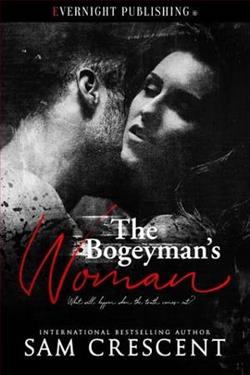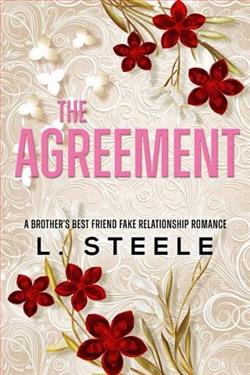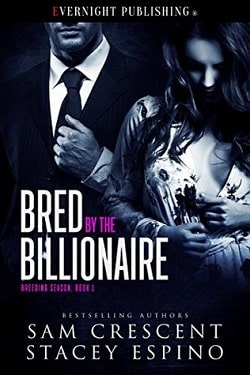Page 72 of The Oscar Escape
She inhaled the piney scent of the sticky rosin used to coat the bow strings to create the friction that generated the sound. She hadn’t picked up a violin in years. But that didn’t matter. It came back to her, and a lightness took over. Damn, she’d missed this. It was like embracing an old friend. She took another breath and connected with the wood and the strings. And then she experienced something peculiar, something new. She wasn’t the type to believe in spirits and ghosts. Still, she sensed a presence associated with this instrument. This violin had to be over one hundred years old. Its history consumed her and sparked . . . joy. Buzzy, heady joy.
On tour, making music had become a chore. But cradling this violin could only be described as . . . a sweet escape.
Escape.There was that word again. But she couldn’t dwell on it. If she allowed another second to pass, someone might stop her.It was time to go big if she wanted to get home in time to prepare for her finale concert in Denver.
Harnessing all the drama she could muster, she sliced the bow across the strings and played a heart-stopping first note. “Paganini, people,” she called, naming the piece’s composer.
Slack-jawed, the group watched as she dove head-first into the most intricate part of the composition. Exhilaration trilled through her body with each note. She caught Oscar’s eye as her fingertips frolicked across the strings. “Do you remember when I learned to play this?” she asked, with a thread of self-assurance laced into the question.
Thank God he didn’t look like his head was ready to explode at her little stunt.
It was quite the opposite.
He walked toward her with his arms lined with plates of grilled cheese sandwiches. He moved around the table, serving lunch, but kept his gaze on her. “Music class in fifth grade. We had a substitute teacher that day and were learning about Paganini’s twenty-four caprices.”
That’s right! Another jolt of exhilaration hit her system.
“Our teacher said it was considered some of the most technically challenging violin pieces ever written. After he played a recording for our class, you told him it didn’t sound that difficult. The guy laughed at you.” Oscar paused as pure adoration graced his face, and he smiled that sweet boyish grin. “And then you got that eat-worms look in your eyes. You went over to the instrument closet, picked out a violin, then flawlessly played the piece from memory.”
She could feel the love coming off him in gentle waves. It was entwined with the music and touched every corner of the room.
Oscar set the last plate in front of the judge. “Then you told the teacher to suck an egg and got sent to the principal’s office.”
Ah, the good old days.
She lowered the instrument. “That’s how I remember it, too. I was grounded for a week, and it was totally worth it.”
“But first, you told your aunt you had to play the Paganini piece for your parents,” Oscar added. “Remember, she was on carpool duty, and you insisted we go to the cemetery after school. The teacher wouldn’t let you take the violin, so you insisted we go by Bab’s place and pick up a violin you’d found in her attic. When we got to the cemetery, Sebastian, Phoebe, and I stood with your aunt and listened as you played. There was a funeral going on nearby. The widow invited you over and asked you to play for them. You started composing on the spot. Your music brought those people comfort. To this day, I can still recall the gratitude on the widow’s face. When she thanked you, she called you something unique. Sugar, cutie? No, doll. That’s it.”
She’d forgotten about playing for her parents and then walking past a clump of hedges to play for the people attending a funeral. But the memories returned. She pictured a widow in black. She heard the crunch of leaves beneath her feet. She felt the sun on her face as it peeked through the clouds. It shined on her as she played like Mother Nature herself chose to direct the spotlight—or perhaps that light was a sign from her mom and dad. Whatever it was, the memory triggered a burst of euphoric energy. It flowed through her, freeing her from a heaviness that had held her back. It was like a blockage in her head—no, in her heart—had been cleared by playing the notes and recalling a time when music had set her free.
And she wasn’t done.
It was an achievement to play a single instrument well. But she was here to dazzle this group. Fueled by the liveliness of the Paganini piece, she returned the violin to its perch, then spied a cello.
Like the violin, this was no bargain-bin instrument. Plucking another bow from the rack, she applied rosin, then balanced the instrument between her legs. Her ass had barely touched the seat when she pierced the air with the cello’s thrumming deep tones. This time, she played . . .
“That’s Bach’s Cello Suite number one,” a petite woman with short, wispy white hair exclaimed. She left the table and removed another cello from the rack.
Aria played the piece’s prelude with its choppy, then rolling, choppy, then rolling cadence. The notes built, one by one, going higher and higher, lifting the air, and sweetening it with sound.
“Do you know Bach’s Cello Suite number two?” the woman asked, lowering into a nearby chair with her gleaming cello.
Aria’s heart swelled. Hell, yes, she knew it. It was one of her favorites.
“We’ll play it in D minor,” Aria replied, a bit caught off guard but happily surprised to play a duet with an islander.
Effortlessly, Aria switched to the emotive piece. Unlike the lively prelude Cello Suite No. 1, Cello Suite No. 2, in the minor melancholy key, denoted deep longing, gutting loss, and the ecstasy of rising from the ashes. With the notes from the two cellos resonating through the space, the piece whittled at her heart. It bore into her soul. Shaving off layers, it left her raw, exposed, and fresh—like a new day, ripe with possibilities. And something else. It offered the promise of returning to oneself.
That’s what she did.
Surrendering to the music—the same sweet music that had lived in her mind and her heart since she was a girl—her arms, hands, and fingers became an extension of the sound. The notes sounded different here. Perhaps it was the sea air or the confines of the schoolhouse. Or maybe it was her—her reaction to the place. Goose bumps peppered her skin as she played alongside the woman.
And this woman was no novice.
Thanks to her aunt and uncle running a program that connected seasoned musicians with troubled youth, Aria had grown up among the finest classical musicians. And the white-haired woman working the bow like a master played like them.
“Hold the last note and wait for my cue,” Aria instructed, taking the lead.















